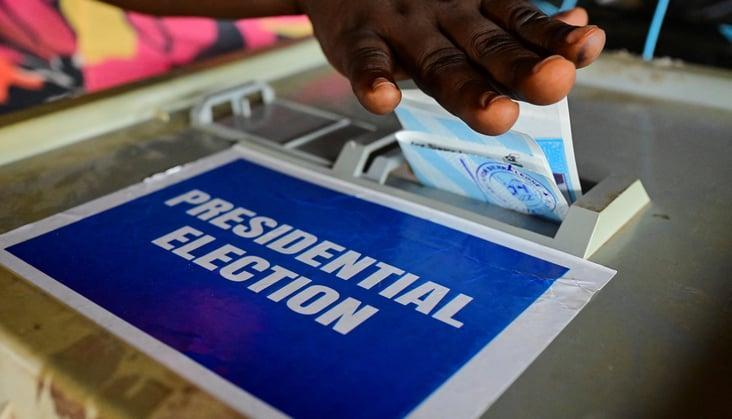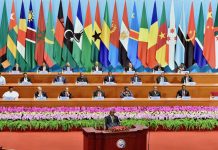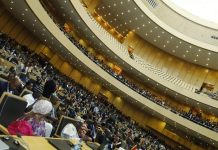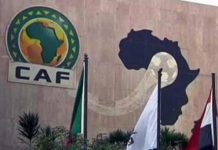Nic Cheeseman
Africa-Press – Lesotho. In Africa, Burkina Faso, Chad, Comoros, Ghana, Mauritania, Mali, Mauritius, Mozambique, Namibia, Rwanda, Senegal, South Africa and South Sudan are all scheduled to elect their leaders in the next 12 months.
In many cases, the governments may win comfortably. Irregularities will be a blow to democracy, further undermining popular confidence in the potential for elections to deliver change.
Controversial elections will not be the only big trend of 2024, however. Citizens living under military rule are likely to become increasingly frustrated at the repression and poor quality services delivered by juntas.
In other words, while elections highlight the vulnerability of democracy to subversion, the multiple failures of authoritarian rule will demonstrate why most Africans aspire to political freedom and choice, inspiring new pro-democracy movements.
The high number of elections in countries with competitive and polarised politics raises important questions – who will win, how will the polls be manipulated, and is this the year that AI and deep fakes take off?
Before we answer these questions for the African continent, however, we first need to take a step back and ask which elections will happen. While Comoros voted on 14 January, elections in Burkina Faso, Mali, Senegal, and South Sudan may not take place.
Earlier this month, President Macky Sall of Senegal shocked the region by postponing elections scheduled for 25 February. In a move worthy of Machiavelli, the government claims this is necessary to resolve a dispute over the candidates list and deliver a credible contest.
In reality, the dispute only exists because of the efforts of the ruling party to manipulate the polls, and the delay is motivated by the government’s fear that it could still lose, even after barring opposition leaders from standing.
For its part, South Sudan has taken some of the necessary steps to hold elections, such as passing the National Elections Act 2012 (Amendment) Bill 2023.
But it faces a desperate race against time to prepare for polls in December in the absence of a census, electoral register and political agreement over how these issues should be resolved.
The transition to democratic government also looks challenging in some of the continent’s post-coup countries. In Burkina Faso, junta leader Ibrahim Traore has said elections are not a priority and will not be held until “security concerns” are resolved.
Meanwhile, Mali has postponed elections scheduled for February for “technical reasons”. Both governments could try and delay polls even later, especially now that they have announced they will be leaving ECOWAS and so will be less susceptible to regional pressures – in principle at least.
Another reason the year of elections will generate limited change is that some of the contests are foregone conclusions. As an election junkie, the prospect of a year of campaigns and vote counts should make my pulse race.
But even I struggle to feign interest in Rwandan President Paul Kagame once again being given 98% of the vote. President Mahamat Déby is likely to face a stronger challenge in Chad, but the government is well-practised in the art of controlling elections.
The return to the country of pro-democracy figure Succès Masra to take up the role of Prime Minister following an agreement with Déby suggests a powerful combination of co-optation and repression will be deployed to marginalise rival candidates.
Opposition victories are also unfeasible in Namibia and South Africa but for very different reasons. Here, ruling parties are so dominant that, despite fast losing popularity and operating in comparatively democratic states, they are all but guaranteed to retain the presidency.
The main change we will see in Southern Africa is therefore a continued drift towards the need for coalition politics in parliament. This will suck a growing number of parties into government, but there is a risk this does more to broaden government patronage networks than it does to improve public policy.
Ghana is therefore the only country where all signs point to an opposition victory. A difficult economic situation, a reliable electoral process, and a strong opposition party all portend defeat for the ruling New Patriotic Party (NPP).
The fact that President Nana Akufo-Addo is standing down after having served two terms in office has further bolstered the feeling that a transfer of power is coming: “open-seat” polls in which the sitting president does not stand delivered political change in both 2000 and 2008.
Not holding elections will save coup leaders in Burkina Faso and Mali from having to give up power, or work out how to control elections enough to retain it. It may also generate its own set of problems, however, including undermining their legitimacy and exacerbating popular criticism of their rule.
Surveys conducted by the Afrobarometer in 39 countries reveal that many African citizens support military intervention – but also that most societies do not want army rule, and see coups as a short-term solution to a crisis of democracy.
In the latest round of surveys conducted over the last two years, a slight majority (53%) say that they support armed intervention if civilian leaders abuse power. Yet a much larger majority (68%) say they are against military government.
This suggests that many of those who support coups want to see the military remove leaders who rig elections and then establish a more democratic regime before leaving power for good.
An interview the BBC conducted in Mali with Ousmane Diallo, a protester and former soldier, back in 2020 illustrates this point well. Diallo said President Ibrahim Boubacar Keïta’s overthrow was legitimate because it represented the will of the people.
He went on to say, however, that “the military should not be thinking now that they can stay in power”. That does not mean the next 12 months are “coup-proof”, however.
High levels of public support for military intervention in countries such as Cameroon, the Republic of Congo, Côte d’Ivoire, and Lesotho will have governments looking over their shoulders, even where coups are less likely because they have never happened before.
This will be particularly true for countries such as Côte d’Ivoire, which feature politicised armed forces, and those that have already had to deny rumours of a coup, as President Denis Sassou Nguesso of the Republic of Congo did last September.
What it does mean is that the longer the military stays in power, the more challenges they will face. In turn, military regimes are likely to become increasingly repressive, which will further erode their reputation.
According to Human Rights Watch, since the start of 2022 the human rights situation ‘seriously deteriorated’ in Burkina Faso and has ‘deteriorated dramatically’ in Mali.
We have already seen efforts to suppress anti-junta protests turn deadly in Guinea, when ‘armed security forces attacked the neighbourhoods of political activists on the eve of planned demonstrations’, resulting in at least two deaths.
The next 12 months are likely to see similar tragedies in other military-led countries, making it increasingly clear that the motivation behind coups was more self-interest, than the hopes and needs of the people.
In turn, this could trigger a wider backlash against junta leaders – and further military intervention – in the years to come, proving that the most effective driver of pro-democracy movements is authoritarianism itself.
Source: Theafricareport
For More News And Analysis About Lesotho Follow Africa-Press






